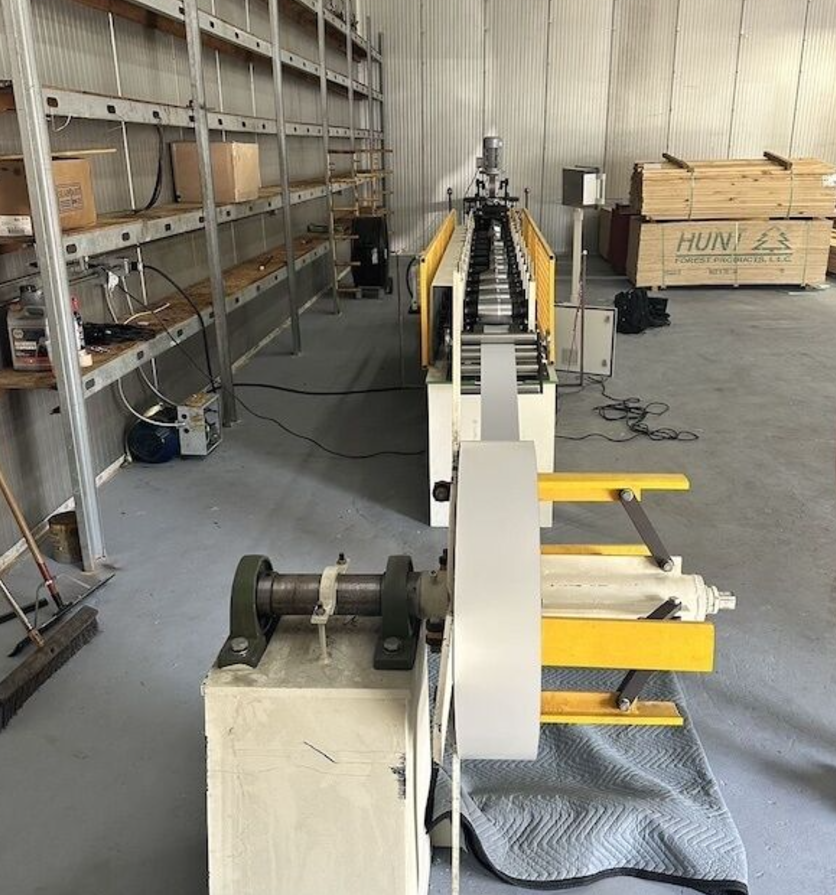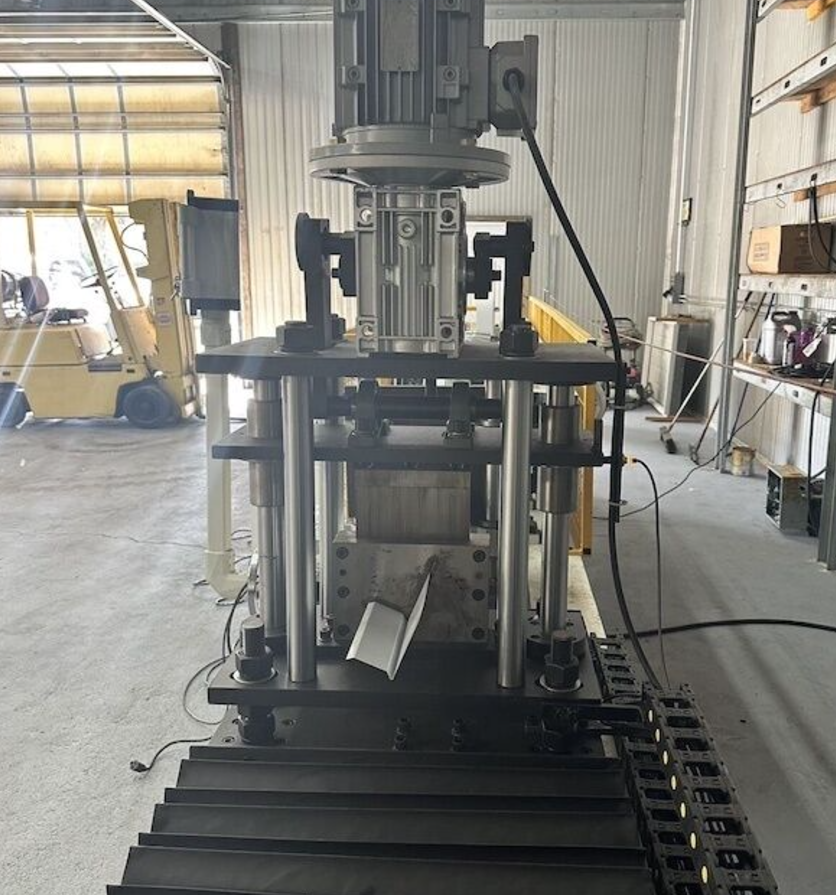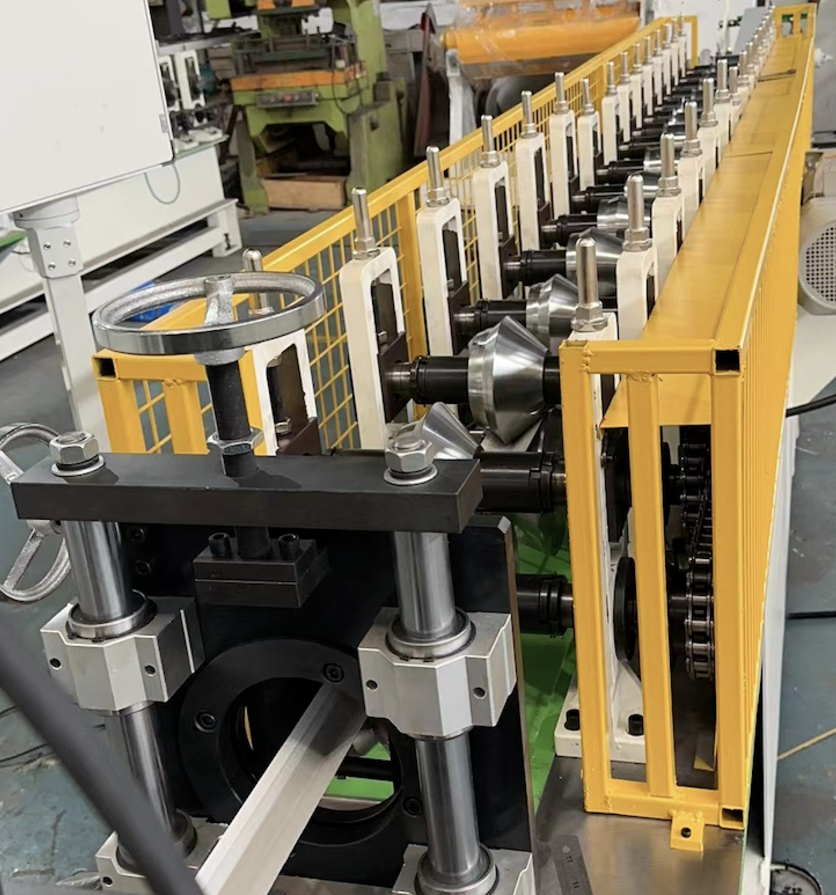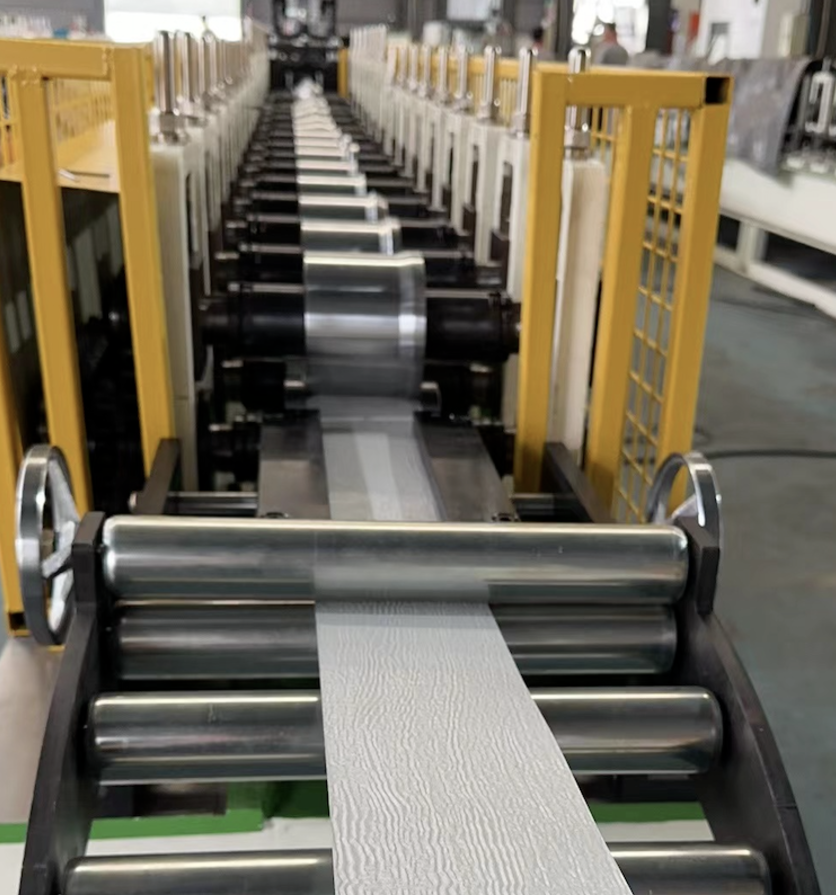To express an interest in this machine please submit the form below.

Not Sure What Machine You Need?
Select Your Profile, We'll Match It
Choose your desired profile drawing, and let Machine Matcher connect you with the best roll forming machine tailored to your needs.
Browse Profiles




A Metal Roof Drip Edge Roll Forming Machine is a specialized industrial equipment designed to fabricate drip edge profiles for metal roofing systems. Drip edges are critical components in roofing systems, providing water-shedding capabilities and protecting the structure's fascia from water damage. These machines are essential for roofing contractors and manufacturers to produce high-quality, consistent, and durable drip edge profiles efficiently.
The machine operates by feeding metal coils into a series of rollers that progressively shape the metal into the desired drip edge profile. It ensures precision, speed, and cost-effectiveness, meeting the high demand for metal roofing solutions in Florida's climate, characterized by frequent rains and hurricanes.
Q: What are the benefits of using a drip edge in roofing systems in Florida?
A: Drip edges help channel water away from the roof and fascia, protecting against water damage, wood rot, and mold growth. They are crucial for homes in Florida, where heavy rainfall and storms are frequent.
Q: Can this machine handle different materials like aluminum or galvanized steel?
A: Yes, the machine can process various materials, including aluminum, galvanized steel, and coated steel, ensuring versatility for different roofing needs.
Q: How can I ensure compliance with Florida’s building codes using this machine?
A: The machine allows for precise adjustments to meet local code requirements. Its PLC system ensures consistent quality and compliance with specifications.
Q: What is the maintenance requirement for this machine?
A: Regular maintenance involves cleaning rollers, checking for wear and tear on moving parts, and ensuring proper lubrication of the machine.
Q: Can this machine produce custom drip edge profiles?
A: Yes, it can be configured to produce a variety of drip edge profiles, depending on customer requirements.
Q: How long does it take to install the machine and start production?
A: Installation typically takes 1–2 days, and training for operation can be completed within a few hours, depending on the operator's experience.
Q: What is the average lifespan of this machine?
A: With proper maintenance, the machine can last 10–15 years or more, ensuring long-term ROI.
Copyright 2026 © Machine Matcher.